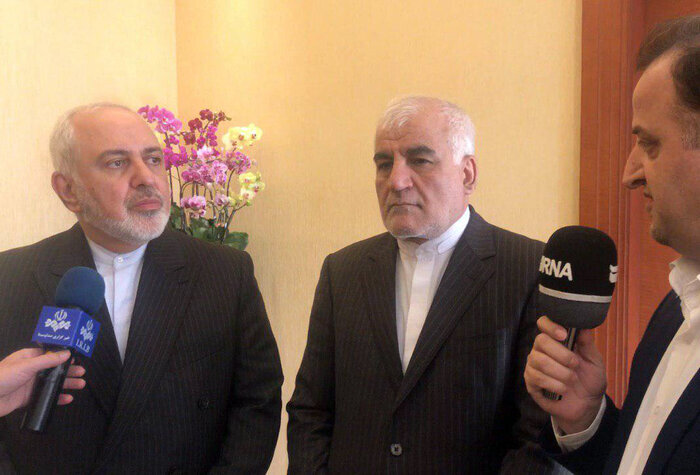Zarif says it is unlikely Europe to quit nuclear deal

TEHRAN – Foreign Minister Mohammad Javad Zarif has told IRNA in an interview published on Tuesday that it is unlikely that Europe withdraw from the 2015 nuclear deal, officially known as the Joint Comprehensive Plan of Action.
However, the chief diplomat said Europeans are unable act independently from Washington in regard to the JCPOA.
“Unfortunately, the Europeans could not take practical actions on the JCPOA independent from the United States,” Zarif remarked.
Zarif added, “It is essential for the Europeans to take practical actions on JCPOA.”
He noted that Iran will reverse its decision to reduce commitments under the deal if Europeans take practical actions.
U.S. President Donald Trump quit the nuclear deal in May 2018 and introduced the harshest ever sanctions on Iran as part of his administration’s “maximum pressure” campaign against Iran.
Under the JCPOA, Iran promised to put limits on its nuclear activities in exchange for the termination of economic and financial sanctions.
Britain, France, Germany, Russia, China, and Iran have been trying to salvage the pact. However, Europeans’ efforts to protect trade with Iran against the U.S. sanctions have yielded nothing concrete so far.
On May 8, exactly one year after the U.S. abandoned the deal, Tehran announced that its “strategic patience” is over and began to partially reduce its commitments to the agreement at bi-monthly intervals.
Iran’s moves are based on paragraph 36 of the JCPOA which “allows one side, under certain circumstances, to stop complying with the deal if the other side is out of compliance.”
In the first stage, Iran announced that it will not limit its stockpile of the nuclear fuel to 300 kilograms allowed under the deal. On that date (May 8) Iran’s Supreme National Security Council (SNSC) said if the remaining parties to the JCPOA, especially Europeans, devise a mechanism to protect Iran from the sanctions’ effect in the two-month deadline it will reverse its decision.
But since European parties missed the deadline, on July 7 Iran announced that it has started enriching uranium to a higher purity than the 3.67%, thereby starting the second step.
Again, as Europe missed the second 60-day deadline, Iran moved to take the third step, removing a ban on nuclear research and development (R&D).
In the latest step, which started on November 6, Iran began injecting uranium gas into 1,044 centrifuges at the Fordow nuclear site. It was done at the presence of inspectors from the International Atomic Energy Agency (IAEA).
Iran has said it will reverse its decision if its economic interests are guaranteed.
NA/PA
Leave a Comment